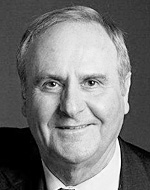Do We Really Want Public Pension Funds to Become Activist Investors?
Some funds are making bolder demands of the companies they hold shares in, and that’s not necessarily a good thing.
(originally published by Booz & Company)Recently a few of the largest public pension funds have made a notable shift. Instead of their former emphasis—lobbying for better board governance at the companies in their portfolios —they are now demanding board seats for directors, and even a greater say in how the companies are run. For example, Anne Sheehan, head of corporate governance at CalSTRS, California’s state teacher’s pension fund, recently orchestrated a shake-up of the board at Timken (a steel and bearings maker), which led to a breakup of the company.
In theory, this sounds like a good thing—more accountability to investors. Yet, I can’t help feeling uneasy about the shift, because it raises real issues about whether public fund managers have the authority, or expertise, to put their hands on the helms of large corporations.
Like most investors, I’m appalled by the blatantly excessive executive compensation (coupled with poor business performance) that’s become all too common. And I realize that publicly held corporations need the good governance that activist pension funds as CalSTRS and Calpers (California’s public employee fund) have long advocated. In particular, those activists have done a good job of exposing crony boards and shaming a few incompetent directors into “voluntarily retirement.”
But in the last year or so, leaders of several public pension funds have begun to sound less like reformers and more like the corporate raiders of the 1980s. Some are even aligning themselves with individual activists like Carl Icahn, Bill Ackman, David Einhorn, Daniel Loeb, and Ralph Whitworth in demanding that companies buy back shares. In other cases, they are demanding a voice in matters of corporate strategy—for example, advocating organizational breakups and spin-offs.
Anne Simpson, director of corporate governance at Calpers, explained in a New York Times article that “what once upon a time had been viewed as sniping has become responsible ownership.” In effect, public fund managers are now claiming the rights of ownership that individual shareholders typically exercise. But the head of a public pension fund isn’t really analogous to a private shareholder who personally owns a significant tranche of company stock. Instead, Simpson is an employee of a nonprofit, government-chartered agency.
Theoretically, this calls into question the validity of the legal notion of ownership as applied to publicly traded corporations. Should people who invest in giant funds—where their risks are pooled—be entitled to the same rights as long-term individual investors who have significant skin in the game? Shouldn’t the rights of members of pension funds be limited, as is their liability?
Even if the pensioners whose investments Simpson manages were to vote her the authority to represent them as legal “owners” of a publicly traded company, the move would lack legitimacy because the shares the fund holds often are not in their names. Moreover, even the largest pension funds seldom hold more than a few percent of shares in the companies where they’re demanding boardroom say—not enough to warrant the stance some of them are now taking.
If pension fund participants were to show up at the gates of a General Motors plant demanding access as its owners, they’d get a quick reality check. Recall the rude reception GM shareholder Michael Moore received in the movie Roger & Me when he pitched up at GM headquarters in Detroit demanding a meeting with “his” company’s CEO. The small number of GM shares that Moore held—and the indirect shares of GM “owned” by participants in a pension fund—are simply not like the kind of deep and direct ownership that Mom and Pop have in their corner deli (or even the large bloc of Apple shares Carl Icahn personally owns). For ownership to be real, the stakes, risks, and duration of investment must be real—and the law recognizes this difference when it allows GM to deny shareholders like Moore access to company property.
There is also a practical issue raised by shareholder activism: the questionable level of expertise and knowledge among institutional fund managers. The largest funds own shares in an extremely wide range of public companies—look through the holdings of some funds and it’s hard to find corporations in which they don’t hold shares. That raises the question of how much fund managers can understand about the industry challenges and organizational complexity of the companies at which they claim the right to a voice.
The same holds true on matters of strategy and performance management, which differ at each of the hundreds of companies in which pension funds hold a stake. (Thus far, Calpers has some restraint in this regard, for example, recently siding with Apple in opposition to Icahn’s campaign to force that company to pay out a large chunk of its hoarded cash to shareholders.)
Which brings us to the scariest part: The major shortcoming of American investor capitalism is its tendency to encourage short-term thinking in boardrooms and C-suites. That tendency was extremely potent when the impetus came only from traditional sources on Wall Street and private investors like Icahn. Those sources are now being reinforced by a powerful alliance of public pension fund managers who are feeling the heat—thanks to underfunded pension liabilities in some cases—to demand more profit, and now. If so, the long-term consequences are unlikely to be good for anyone but America’s Asian and European corporate competitors (where investors tend to be more patient).
Yet, the best part of investor capitalism is that it involves voluntary exchanges: Nobody insists you buy stock in particular companies or prevents you from selling shares when you no longer trust their management. Disinvestment is the oldest, best, and most effective form of voting “no confidence” in a company’s leadership, particularly when the issue is chronically poor governance by a board that is deaf to calls for reform. In that situation, dumping shares would get the attention of a board—and send a message to others who don’t heed the call for better governance.
Yet pension fund managers should use such power sparingly, and specifically with regard to issues of governance, where they have clear expertise and legitimacy. Investors really don’t need them to join the barbarians at the gate.





